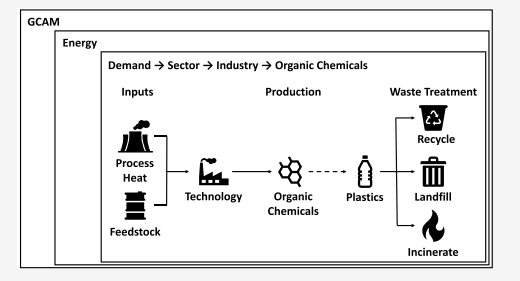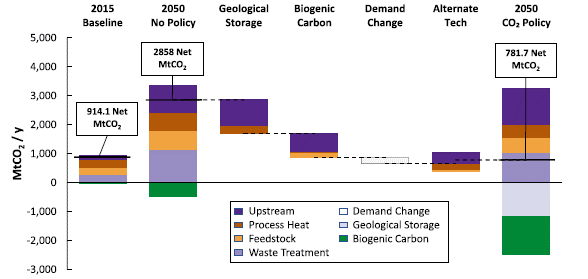Mitigating CO2 Emissions from the Organic Chemical and Plastics Industry
The chemical industry is a major and growing source of CO2 emissions and is currently responsible for 6.5% of global greenhouse gas emissions. This paper advances the Global Change Analysis Model’s (GCAM) portrayal of chemicals to assess a full set of decarbonization options and identify specific actions that the organic chemical sector can take to reduce emissions.

The study finds that the combination of strategies used to reduce emissions from organic chemical process heat accounts for ∼24% of the net emission reductions. Process heat, or “the use of thermal energy to produce, treat or alter manufactured goods,” paired with carbon capture and storage (CCS), accounts for 55% of these reductions. Other strategies include using biogenic carbon as a fuel for process heat and increasing the use of alternative process heat technologies, such as low or zero-emission hydrogen and electricity. Additionally, reductions in feedstock emissions – the emissions from the fossil fuels used to manufacture products – account for ∼11% of the net emission reductions due to CO2 policy. This shows that decarbonizing process heat is more cost-effective than the path for emissions from carbon feedstock, since reducing feedstock emissions shows a smaller overall reduction by 2050.

The only scenario that delivers net-negative CO2 emissions from the organic chemical sector by 2070 combines greater use of biogenic feedstocks with a continued reliance on landfilling of waste plastic, versus recycling or incineration both of which have trade-offs.
For the full paper, download the file below.


